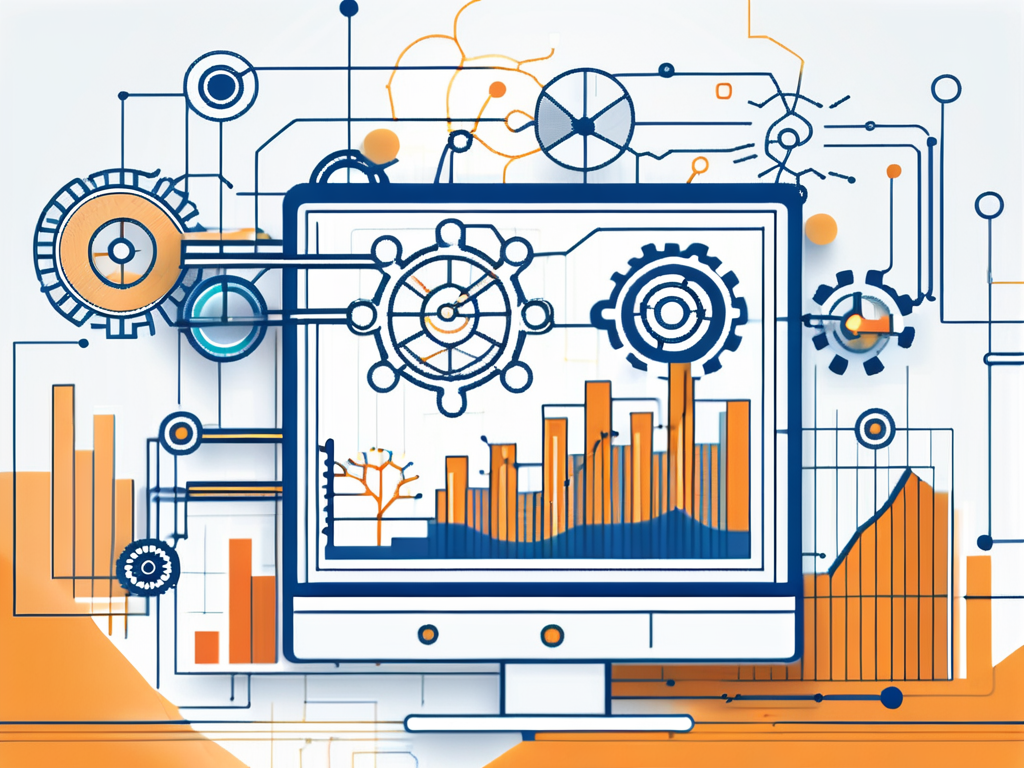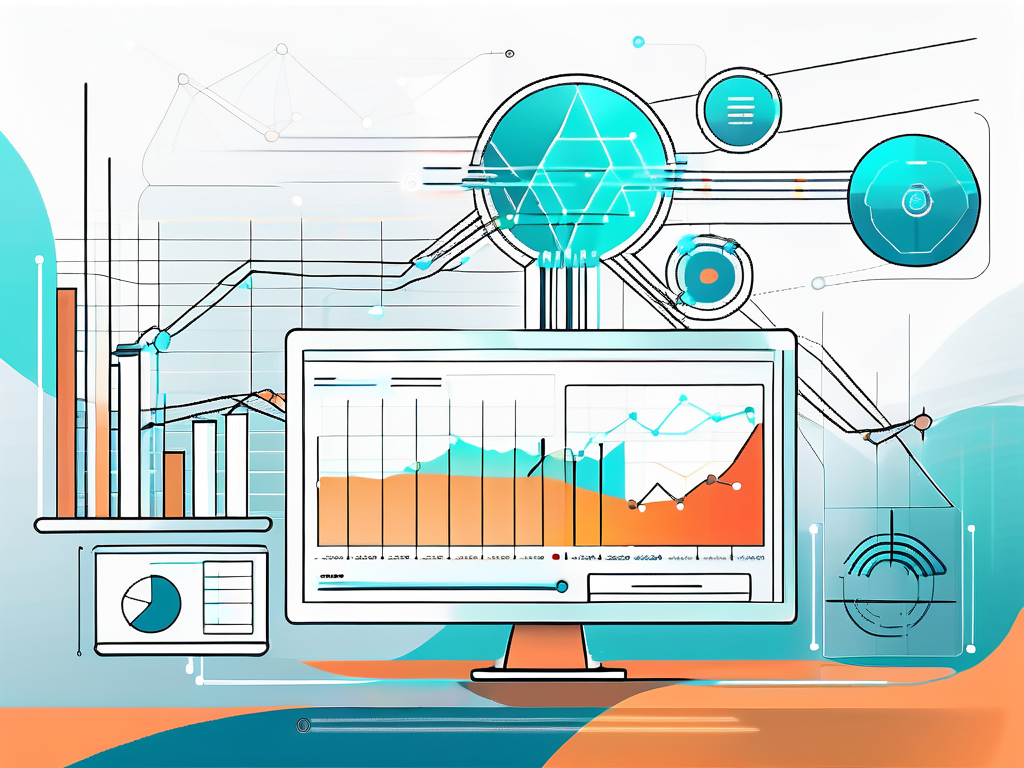In today’s rapidly evolving business landscape, the impact of data science and analytics cannot be overstated. As organizations strive to gain a competitive edge and make informed decisions, the ability to harness the power of data has become indispensable. Understanding the nuances of data science and analytics is crucial for businesses in order to unlock valuable insights and drive growth.
Understanding Data Science and Analytics
Data science is an interdisciplinary field that combines scientific methods, processes, algorithms, and systems to extract knowledge and insights from structured and unstructured data. It involves the use of various tools and techniques to collect, analyze, and interpret data to make informed decisions.
Analytics, on the other hand, focuses on the exploration and analysis of data to uncover patterns, trends, and correlations. It utilizes statistical models and algorithms to extract meaningful information and drive strategic actions.
Defining Data Science
At its core, data science revolves around the extraction of knowledge from data. It involves not only the technical skills to handle large volumes of data but also the ability to ask the right questions and derive actionable insights from the data.
Data scientists utilize a combination of mathematics, statistics, computer science, and domain knowledge to uncover valuable information hidden within datasets. They employ advanced techniques like machine learning, natural language processing, and data visualization to make sense of complex data sets.
The Role of Analytics
Analytics plays a crucial role in extracting insights from data and transforming them into actionable strategies. It involves the use of statistical techniques to analyze historical and real-time data, enabling businesses to make data-driven decisions.
By leveraging analytics, organizations can identify patterns, trends, and outliers in data, allowing them to optimize processes, enhance operational efficiency, and identify new business opportunities. Analytics provides a foundation for evidence-based decision-making, enabling businesses to mitigate risks and improve overall performance.
One of the key challenges in data science is dealing with unstructured data. Unstructured data refers to information that does not have a predefined format or organization, such as text documents, social media posts, and images. Extracting insights from unstructured data requires advanced techniques like natural language processing and computer vision.
Furthermore, data scientists often face the challenge of data quality and data integration. Data quality refers to the accuracy, completeness, and consistency of data, while data integration involves combining data from multiple sources to create a unified view. Ensuring data quality and performing effective data integration are essential for obtaining reliable and meaningful insights.
The Intersection of Business and Data Science
The convergence of business and data science is transforming the way organizations operate. By leveraging data-driven decision-making, businesses can gain a competitive advantage and adapt to changing market dynamics. Let’s explore two key areas where data science intersects with business.
The Importance of Data-Driven Decision Making
Data-driven decision making involves the use of data analysis and insights to guide strategic choices. By basing decisions on factual evidence, businesses can reduce uncertainty and make informed choices that align with their objectives.
With the advent of big data and advanced analytics, businesses can access vast amounts of information from multiple sources. This wealth of data helps organizations understand customer behavior, market trends, and internal processes, enabling them to formulate strategies that drive growth and profitability.
For instance, imagine a retail company analyzing customer purchase patterns to identify emerging trends. By leveraging data-driven decision making, the company can adjust its inventory levels to meet customer demand, ensuring that popular products are always in stock. This not only improves customer satisfaction but also optimizes the company’s supply chain management, reducing costs and increasing efficiency.
Predictive Analytics in Business Strategy
Predictive analytics is a powerful tool that enables businesses to anticipate future outcomes based on historical data. By leveraging predictive models and algorithms, organizations can make accurate forecasts, identify potential risks and opportunities, and optimize their strategies.
For example, in the retail industry, predictive analytics can help businesses determine customer demand, optimize inventory levels, and personalize marketing campaigns. By analyzing past purchasing behavior, a company can predict which products are likely to be popular in the future and adjust its inventory accordingly. This not only helps prevent stockouts but also reduces excess inventory, improving cash flow and profitability.
In addition, predictive analytics can be applied to fraud detection in the financial sector. By analyzing historical transaction data, organizations can identify patterns associated with fraudulent activities and develop algorithms to flag suspicious transactions in real-time. This proactive approach helps mitigate financial losses and protect both the company and its customers.
By embracing data-driven decision making and leveraging predictive analytics, businesses can unlock valuable insights and gain a competitive edge. The intersection of business and data science is not just a trend, but a fundamental shift in how organizations operate in the modern world.
The Impact of Data Science on Various Business Sectors
Data science has permeated various sectors, revolutionizing the way businesses operate and make informed decisions. Let’s explore two key sectors where data science has made a significant impact.
Data Science in Marketing and Sales
In marketing and sales, data science has transformed the way businesses connect with customers. By analyzing customer data, businesses can gain insights into customer preferences, behavior, and purchasing patterns.
This information allows businesses to create targeted marketing campaigns, personalize customer experiences, and improve customer retention. Data science enables businesses to optimize their marketing strategies, ensuring that every dollar invested delivers maximum returns.
Moreover, data science in marketing and sales has led to the rise of predictive analytics, allowing businesses to forecast future trends and customer behavior. By utilizing machine learning algorithms, businesses can predict customer churn, identify cross-selling opportunities, and optimize pricing strategies.
The Role of Analytics in Supply Chain Management
In supply chain management, analytics has played a vital role in optimizing processes and improving efficiency. By analyzing supply chain data, businesses can identify bottlenecks, streamline operations, and reduce costs.
Analytics helps businesses identify trends and patterns in supplier performance, demand forecasting, and inventory management. By leveraging these insights, businesses can make informed decisions that reduce lead times, optimize inventory levels, and improve overall supply chain performance.
Furthermore, the integration of Internet of Things (IoT) devices in supply chain analytics has revolutionized real-time monitoring and tracking of goods. By leveraging IoT sensors and devices, businesses can track the location, condition, and status of goods in transit, enabling proactive decision-making and risk management.
Challenges in Implementing Data Science and Analytics
While the potential benefits of data science and analytics are immense, implementing these practices can come with its own challenges. Let’s explore two key challenges faced by businesses when adopting data science and analytics.

Overcoming Data Privacy Concerns
One of the key challenges in implementing data science and analytics is ensuring the privacy and security of customer data. With the increasing amount of personal and sensitive information being collected, businesses must establish robust data protection measures and comply with legal and ethical standards.
Rigorous data governance and encryption techniques are essential to safeguarding customer information and maintaining trust. By prioritizing data privacy, businesses can leverage data science and analytics while ensuring the protection of personal data.
Moreover, with the implementation of regulations like the General Data Protection Regulation (GDPR) and the California Consumer Privacy Act (CCPA), businesses face additional complexities in managing and protecting customer data. Compliance with these regulations requires a deep understanding of data handling practices and may necessitate the appointment of data protection officers to oversee regulatory adherence.
The Issue of Data Quality and Accuracy
Another challenge in the realm of data science and analytics is ensuring the quality and accuracy of the data being analyzed. Incomplete, incorrect, or inconsistent data can lead to flawed insights and inaccurate conclusions.
Businesses must invest in data quality management processes and tools to ensure data integrity. Data cleansing, validation, and verification techniques play a crucial role in maintaining the accuracy and reliability of data used for decision-making.
Furthermore, the proliferation of data sources and the increasing volume of data being generated pose additional challenges to maintaining data quality. Businesses must implement data integration strategies to consolidate data from various sources and ensure consistency across datasets. Data governance frameworks can help establish data quality standards and protocols to address these challenges effectively.
The Future of Data Science and Analytics in Business
As technology advances and data becomes increasingly pervasive, the future of data science and analytics holds tremendous potential for businesses. Let’s explore two emerging trends that are shaping the future of data science in the business world.

Emerging Trends in Business Analytics
The field of business analytics is constantly evolving, driven by technological advancements and evolving business needs. One emerging trend is the integration of artificial intelligence (AI) and machine learning (ML) techniques into analytics.
AI and ML enable businesses to leverage advanced algorithms that can process vast amounts of data, identify patterns, and make accurate predictions. These technologies empower businesses to automate processes, enhance decision-making, and unlock new opportunities for growth.
The Role of Artificial Intelligence and Machine Learning in Data Science
Artificial intelligence and machine learning are poised to revolutionize the field of data science. These technologies enable businesses to leverage large datasets and complex algorithms to uncover valuable insights and drive innovation.
From speech recognition and image analysis to predictive modeling and natural language processing, AI and ML enhance the capabilities of data scientists and analysts. By automating repetitive tasks and augmenting human analysis, businesses can accelerate their data science initiatives and achieve breakthrough results.
Furthermore, the integration of AI and ML in data science opens up new possibilities for businesses to optimize their operations and improve customer experiences. For example, AI-powered chatbots can provide personalized recommendations and support to customers, enhancing their satisfaction and loyalty.
Moreover, AI and ML can also be utilized to detect and prevent fraud in real-time. By analyzing vast amounts of transactional data and identifying patterns of fraudulent activities, businesses can proactively protect themselves and their customers from financial losses.
Additionally, the combination of AI and ML with data science allows businesses to gain a deeper understanding of consumer behavior. By analyzing data from various sources, such as social media, online browsing habits, and purchase history, businesses can create targeted marketing campaigns that resonate with their target audience, leading to higher conversion rates and increased revenue.
In conclusion, the future of data science and analytics in business is bright, thanks to the integration of artificial intelligence and machine learning. These technologies empower businesses to unlock valuable insights, automate processes, and drive innovation. By embracing these emerging trends, businesses can stay ahead of the competition and thrive in the data-driven economy.
Conclusion
In today’s data-driven world, the impact of data science and analytics on businesses cannot be ignored. The ability to extract meaningful insights from data has become a strategic imperative for organizations striving to gain a competitive edge.

By understanding the fundamental concepts of data science and analytics, businesses can harness the power of data to make informed decisions, optimize operations, and drive growth. Overcoming challenges and embracing emerging trends in the field will further propel businesses towards a future where data-driven strategies are the norm.

Leave a Reply